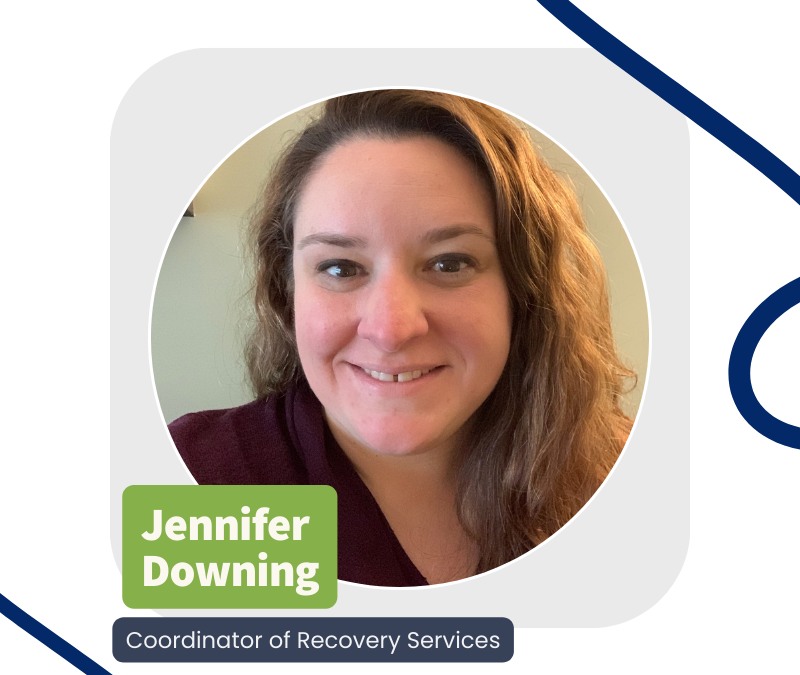Interview with Jennifer Downing – Coordinator of Recovery Services
How long have you been a Bridges employee? I’ve been at Bridges since 2010. I started as an intern while attending Southern CT State University for my bachelor’s degree. Over the years, I’ve worked as a case manager and an employment specialist, and I worked at the Wellness Center and in jail diversion. After I got my Master’s degree and became an LCSW, I got promoted to oversee Recovery Services. I’ve practically grown up at Bridges and have always felt supported here. Bridges has given me many opportunities to grow. I’ve been in my current role as Coordinator of Recovery Services for a year and a half. I supervise the staff, oversee these programs, and perform evaluations and reporting that goes back to DMHAS.
What can you tell us about the Vocational Services at Bridges? Our Vocational Services have two full-time employment specialists who help Bridges’ clients from Milford, West Haven, and Orange obtain and maintain employment, get into GED programs, or take college-level courses. They help our clients with resume writing, mock interviews and match them with an employer. Each employment specialist forms long-lasting relationships with employers to provide clients with support after they’re employed and to serve as their advocate. Our Vocational Services implement the Individual Placement and Support (IPS) model which helps people living with mental and behavioral health conditions work at the jobs of their choosing.
What is the Open-Door Wellness Center? The Open-Door Wellness Center (formerly known as the Social Club) is a member-based group that focuses on social rehabilitation for Bridges clients from West Haven, Milford, and Orange. The goal of the Center is for its members to work on their interpersonal skills and improve their overall wellness. The Club hosts outings and day trips, wellness activities such as yoga, relationship groups, meditation groups, walking/exercise groups, music, and trivia.
What are the biggest challenges for you and your staff? For our Vocational Services, one of our biggest challenges is that we’re limited in the number of clients we can serve in that each specialist can only work with 20 people at a time. For the Wellness Center, we were constrained during COVID due to restrictions where members couldn’t see each other or enjoy their regular activities together. For a group of individuals who already struggle with isolation and need a social program, it was difficult to provide social connection.
How do your programs most significantly impact individuals? Our Vocational Services give hope to our clients who thought they could never work or were afraid to work. We help them realize that their mental health issues don’t have to be barriers to employment. In fact, employment has been shown to promote mental health, recovery outcomes and improve successful community integration.
For people who would otherwise be isolated, our Wellness Center provides a safe place to go and a community to be a part of. Our members support and deeply care for each other, and they’re cultivating the necessary skills for success in life.
